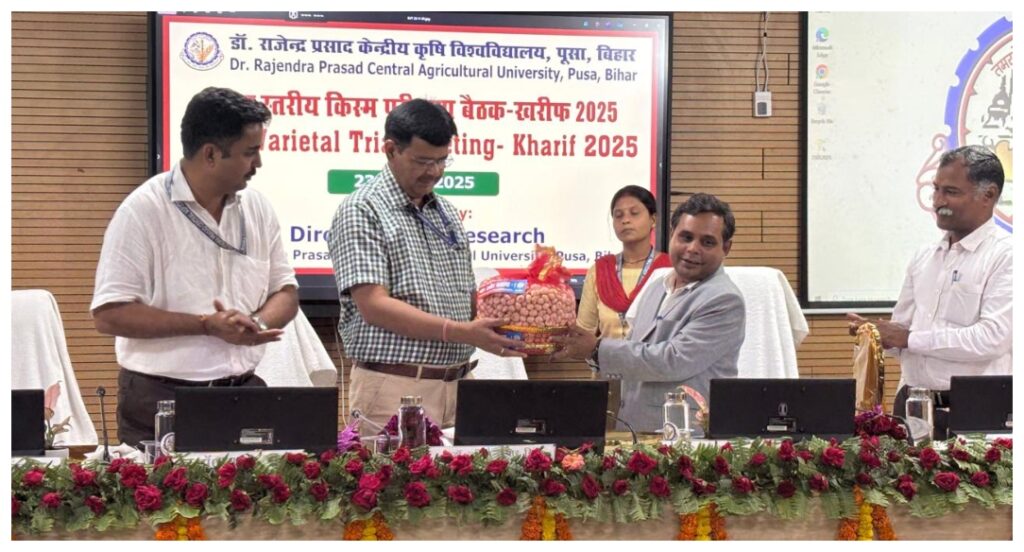
Samastipur/Patna: In the a significant step towards enhancing agricultural productivity and climate resilience in Bihar, the Bihar Agricultural University, Sabour, and Dr Rajendra Prasad Central Agricultural University, Pusa, convened the 26th Joint State Variety Trial (SVT) to evaluate and nominate promising varieties of Kharif crops for the 2025 season.
Held in Pusa, the meeting brought together plant breeders and senior scientists from both universities. Discussions focused on reviewing the performance of paddy, maize and pigeon pea varieties, assessing technical progress, and finalising the nomination of new high-potential strains.
Among paddy varieties, BRR 2108, BRR 215, BRR 266 and BRR 252 were identified as particularly promising and are set to move forward in the process for potential release.
The meeting also marked a strategic expansion into vegetable crops, with cauliflower, tomato, brinjal and chilli now included in the trial programme. This diversification aims to enhance both the nutritional profile of farm produce and the economic resilience of farmers.
The initiative places strong emphasis on the development of varieties that are climate-tolerant, nutritionally enriched (biofortified) and high-yielding—essential characteristics for strengthening food security and increasing farm incomes across Bihar.

Key researchers present included Anil Kumar Singh, Director Research, Bihar Agricultural University; Mayank Rai, Dean of the Postgraduate Department; Chikkappa from the Makhana Research Centre, Begusarai; and Mukesh Kumar, Additional Director Research at Dr Rajendra Prasad Central Agricultural University.
The universities jointly pledged to deepen collaboration in the coming years to fast-track the development and dissemination of improved varieties. “By developing climate-tolerant and nutrition-rich varieties, we will improve the income of farmers and strengthen the food security of the state,” said D R Singh, Vice Chancellor of Bihar Agricultural University.
Echoing this sentiment, P S Pandey, Vice Chancellor of Dr Rajendra Prasad Central Agricultural University, added, “Through this initiative, we will provide better options to farmers by developing more productive and climate-resistant varieties.”
Scientists stressed the urgency of aligning research and field implementation. “There is a need to accelerate variety development based on climate-tolerance, high nutrition and higher production,” said Anil Kumar Singh, Director Research, Bihar Agricultural University.
With climate change and nutritional insecurity posing growing threats to agriculture, this coordinated effort is expected to provide Bihar’s farmers with more reliable tools for sustainable cultivation.





